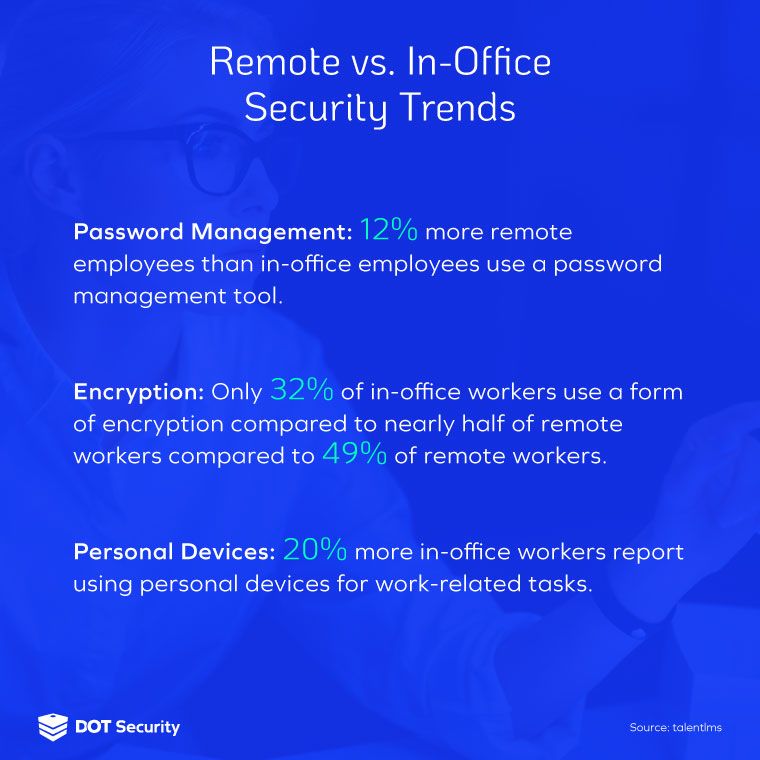Cybersecurity Consulting
The Importance of Cybersecurity Awareness, Training, and Education
February 04, 2022
4 minutes

Businesses need better protection against cyberthreats—new attack vectors, methods, and actors pose threats to all businesses today.
What most don’t realize, however, is that the biggest vulnerability is actually their own employees. Cyberattacks are becoming more common every year and the majority of those threats are targeted at workers.
Sign up for our newsletter!
Attackers hope to use social engineering to trick staff into divulging sensitive information, which can then be used for malicious purposes.
Are yours prepared to fend off threats that hope to steal confidential information?
Read on to learn more about how implementing cybersecurity awareness training can help keep a business and its people safer from lurking threats.
Why is Cybersecurity Awareness Training Important for Businesses?
Cybersecurity awareness training is becoming crucially important for businesses because cybercrime is on the rise and those hackers are hunting for unaware and uneducated victims to use as a doorway into a network.
They do this through numerous forms of attacks—malware, viruses, etc.—but most commonly it’s done through a social engineering attack.
Social engineering attacks are the form of cyberattack that focuses on tricking people into willingly giving away credentials, passwords, and financial or personal information.
These attacks are very frequent and with 98% of cyberattacks involving social engineering, they are easily the most common form of threat because of how little businesses tend to focus on enhancing cybersecurity awareness.

In SMBs, only 44% of employees receive any form of security awareness training.
Simply put, people are targeted by these attacks because hackers know they aren’t prepared. So, what can businesses do to help themselves and their workers?
How Businesses Can Counter Social Engineering Attacks and Other Threats?
The tough part for businesses is that no amount of spam filters or antivirus software will completely halt these attacks.
Phishing emails and scam messages will still sneak through and present a chance for someone to fall for a bad link or expose information.
Fortunately, attacks that stem from social engineering or rely on user error are entirely preventable for businesses who take the time to prepare and educate their people.
Combating social engineering, and other forms of threats that prey on people, involves businesses implementing consistent cybersecurity training.
An educated workforce knows what these attacks look like and how to avoid them, which makes proper training critical.
Cybersecurity awareness training is also very versatile because since it’s a mainly digital issue, the training can be done digitally and from anywhere.
But there are a few options that companies have when deciding on an education strategy, here’s a look at what cybersecurity training can be in the workplace:
The Types of Cybersecurity Training
In-Person Training
We’re all familiar with classroom-style training which involves bringing in groups of employees for a day or two of class sessions where a teacher (usually either an education or security expert or both) discuss best practices and what to watch out for.
Online Training
The most common form of cybersecurity training, online training is usually a digital course taken remotely on a computer.
These courses typically have users read about security best practices and what to watch for followed by scenarios or quizzes to test knowledge.
The benefit of online training is that workers can complete the training from anywhere and on their own time, greatly increasing the chance of it getting done.
Simulations
Simulated attacks can be a part of the other two types of training or just on their own.
These involve simulated scenarios where employees must make decisions based on prior training to test knowledge in a real-time setting. These can be done digitally or in person.
How Education Prepares Businesses for the Future of their Cybersecurity
We’ve established that businesses need to prepare their workers and build a stronger resistance to cyberthreats in the future, but how is that done purely through education and training?
All of this culminates in what is known as a culture of cybersecurity awareness.
Consistent exposure to information on cyberthreats, what to look for, and how to avoid attacks helps to make cybersecurity information second nature and bakes it into everyday processes like checking emails and texts, sending documents, and making phone calls. Effective cybersecurity awareness training can reduce a business’ risk by 70%.
Bottom Line
Businesses who want to take cybersecurity seriously must understand the importance of education’s role in a security strategy to build a foundational knowledge across an entire organization.
If you’re considering educating your workforce with cybersecurity awareness training to protect your business again social engineering attacks, contact DOT Security today to speak with an expert about getting started.
